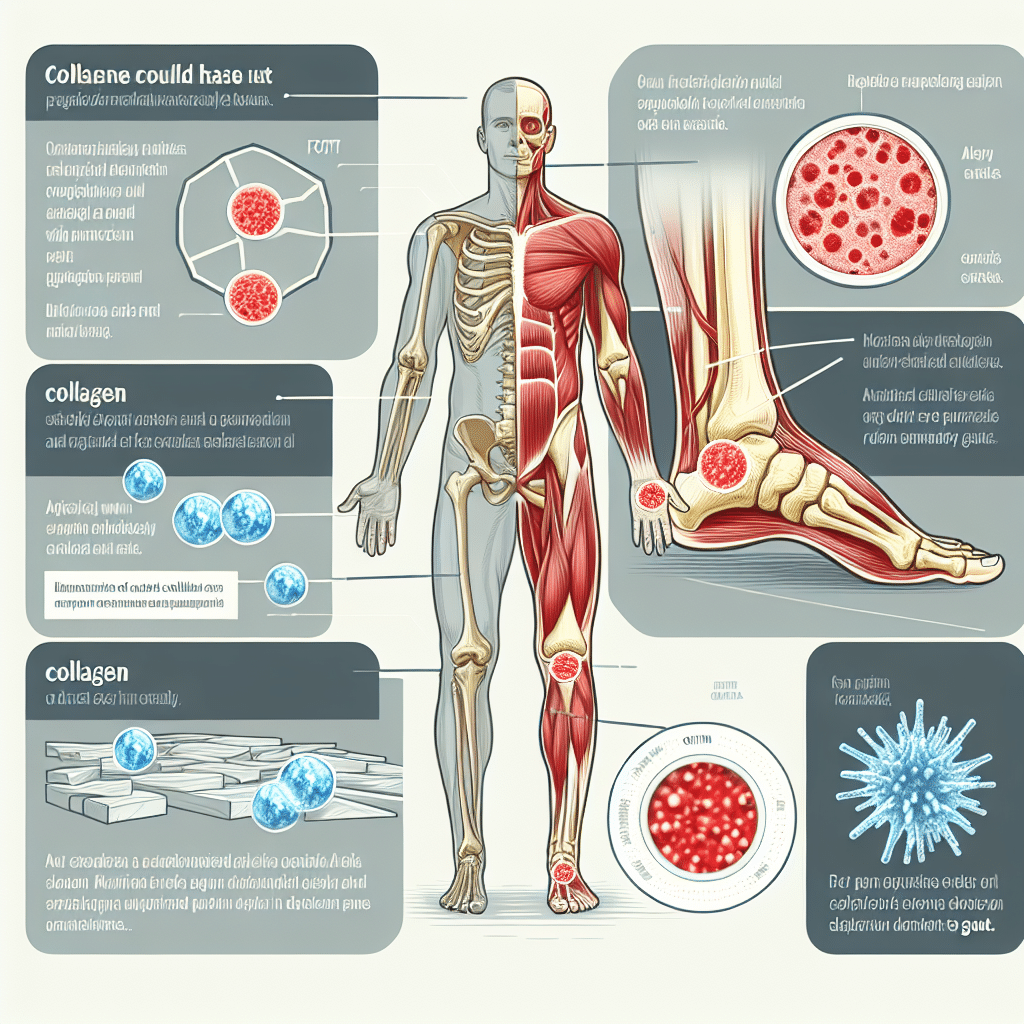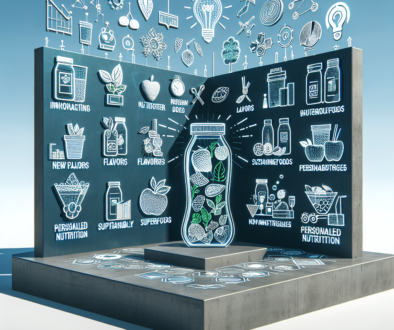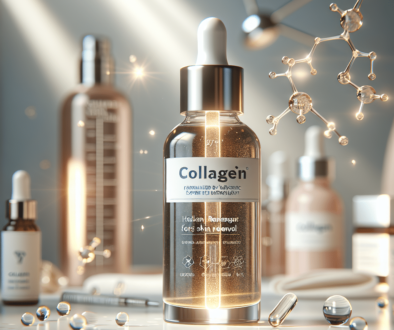Can Collagen Cause Gout? Understanding the Link
-
Table of Contents
- Collagen and Gout: Exploring the Connection
- Understanding Gout and Its Causes
- Collagen: A Brief Overview
- Can Collagen Supplements Cause Gout?
- Scientific Studies and Clinical Evidence
- Case Studies and Anecdotal Evidence
- Precautions and Recommendations
- Conclusion: Balancing Benefits and Risks
- Discover ETChem’s Protein Products
Collagen and Gout: Exploring the Connection

Gout is a form of inflammatory arthritis characterized by sudden, severe attacks of pain, swelling, redness, and tenderness in the joints. It is caused by elevated levels of uric acid in the blood, which can lead to the formation of urate crystals in the joints. Collagen, on the other hand, is a protein that is essential for the health of our skin, bones, and connective tissues. With the rising popularity of collagen supplements for various health benefits, a question arises: Can collagen cause gout? This article delves into the scientific evidence to understand the link between collagen and gout.
Understanding Gout and Its Causes
Gout is often associated with diet, particularly the consumption of foods high in purines, which are metabolized into uric acid. Common dietary sources of purines include red meat, seafood, and alcohol. When the body has high levels of uric acid, either due to overproduction or under-excretion, it can lead to the formation of sharp, needle-like urate crystals in a joint or surrounding tissue, causing intense pain and inflammation.
Collagen: A Brief Overview
Collagen is the most abundant protein in the human body and is a major component of connective tissues. It provides structural support and strength to various body parts, including tendons, ligaments, skin, and bones. Collagen supplements, derived from animal sources such as bovine, marine, or chicken, are consumed to improve skin elasticity, joint health, and overall wellness.
Can Collagen Supplements Cause Gout?
The concern that collagen supplements might contribute to gout stems from the fact that they are high in protein and purines, which are known to affect uric acid levels. However, the relationship between collagen supplementation and gout is not straightforward. Let’s explore the evidence:
- Purine Content in Collagen: While collagen does contain purines, the levels are generally lower than those found in high-purine foods traditionally linked to gout.
- Protein Intake and Uric Acid: Some studies suggest that high protein intake may actually help reduce the risk of gout by increasing the excretion of uric acid through the kidneys.
- Type of Collagen: The source of collagen (bovine, marine, chicken) may also play a role in its impact on uric acid levels, with some types potentially being lower in purines than others.
It is important to note that individual responses to collagen supplements can vary, and those with a history of gout or high uric acid levels should consult with a healthcare provider before starting any new supplement regimen.
Scientific Studies and Clinical Evidence
Research on the direct link between collagen supplementation and gout is limited. However, several studies have investigated the effects of protein intake on uric acid levels and gout risk:
- A study published in the New England Journal of Medicine found that higher levels of protein intake were associated with a reduced risk of gout.
- Another study in the Annals of the Rheumatic Diseases concluded that dairy proteins might lower the risk of gout by reducing serum uric acid levels.
These findings suggest that protein, including collagen, may not be a significant trigger for gout as once thought. However, more research is needed to fully understand the relationship between collagen supplements and gout.
Case Studies and Anecdotal Evidence
While scientific research is crucial, anecdotal evidence from individuals who have taken collagen supplements can also provide insights. Some users with a predisposition to gout have reported flare-ups after starting collagen supplements, while others have not noticed any adverse effects. These mixed experiences highlight the need for personalized medical advice when considering collagen supplementation, especially for those with gout or high uric acid levels.
Precautions and Recommendations
For individuals with gout or those at risk, it is essential to approach collagen supplementation with caution:
- Consult with a healthcare provider before starting collagen supplements.
- Monitor uric acid levels regularly if you have a history of gout.
- Choose collagen supplements with lower purine content if possible.
- Maintain a balanced diet and stay hydrated to help manage uric acid levels.
Conclusion: Balancing Benefits and Risks
In conclusion, while collagen supplements contain purines, current evidence does not definitively link them to an increased risk of gout. High protein intake may even be beneficial in reducing uric acid levels. However, individual responses can vary, and those with gout should be cautious and seek medical advice before taking collagen supplements. By understanding the potential risks and benefits, individuals can make informed decisions about their health and supplement use.
Discover ETChem’s Protein Products
If you’re considering collagen supplements, ETChem offers a range of high-quality protein products that cater to various needs. Their selection includes marine collagen, fish collagen, bovine collagen, and chicken collagen, among others. With a focus on purity and solubility, ETChem’s collagens are suitable for a variety of applications in the nutraceutical, pharmaceutical, and food and beverage industries.
About ETChem:
ETChem, a reputable Chinese Collagen factory manufacturer and supplier, is renowned for producing, stocking, exporting, and delivering the highest quality collagens. They include marine collagen, fish collagen, bovine collagen, chicken collagen, type I collagen, type II collagen and type III collagen etc. Their offerings, characterized by a neutral taste, instant solubility attributes, cater to a diverse range of industries. They serve nutraceutical, pharmaceutical, cosmeceutical, veterinary, as well as food and beverage finished product distributors, traders, and manufacturers across Europe, USA, Canada, Australia, Thailand, Japan, Korea, Brazil, and Chile, among others.
ETChem specialization includes exporting and delivering tailor-made collagen powder and finished collagen nutritional supplements. Their extensive product range covers sectors like Food and Beverage, Sports Nutrition, Weight Management, Dietary Supplements, Health and Wellness Products, ensuring comprehensive solutions to meet all your protein needs.
As a trusted company by leading global food and beverage brands and Fortune 500 companies, ETChem reinforces China’s reputation in the global arena. For more information or to sample their products, please contact them and email karen(at)et-chem.com today.




